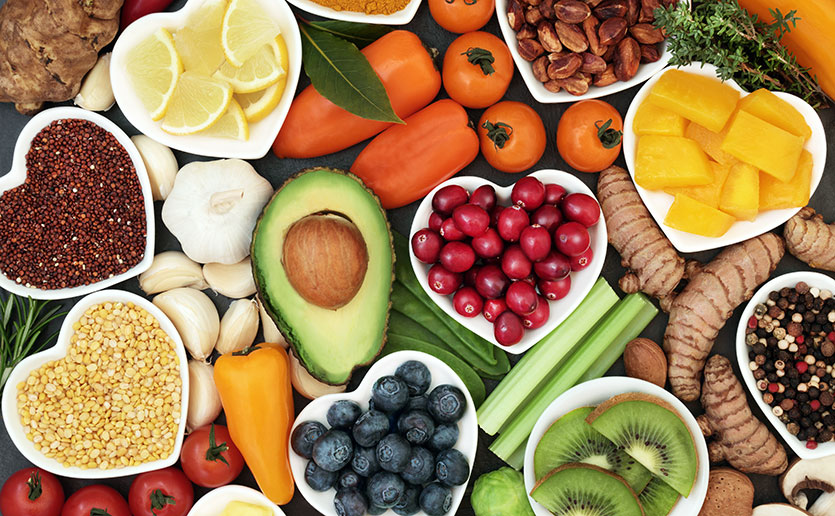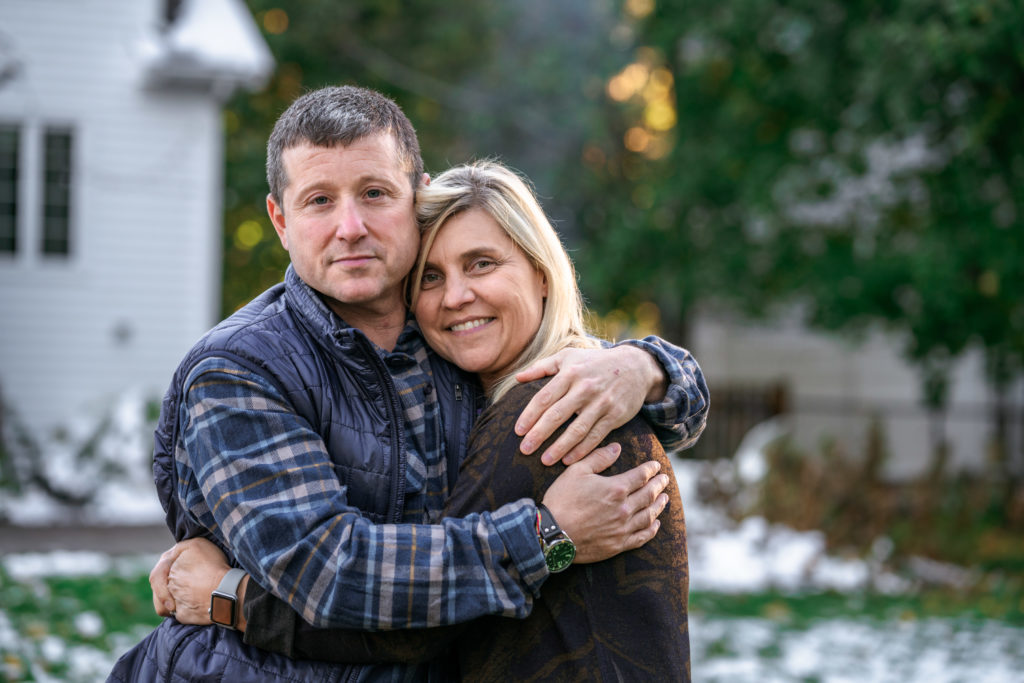Having a healthy diet is just as important now as it was prior to COVID-19. The good news: you don’t have to buy expensive products or supplements to protect yourself. In fact, you may already have a variety of beneficial foods in your pantry. Here’s how to opt for budget-friendly items with immune-supportive nutrients (and why you can probably skip the costly supplements).
Fortify with Plant-based Proteins and Whole Grains
Zinc is a mineral that helps the immune system fend off intruding bacteria and viruses. While animal sources, particularly red meat and shellfish, are high in zinc, they can also be pricey. Luckily plant-based foods, like pumpkin seeds, chickpeas, oatmeal, and even baked beans are good options too. Many cereals are fortified with zinc, so they are also a cost-effective strategy to boost your intake. (Look for brands with at least 20% Daily Value on the Nutrition Facts label.) Try them as a crunchy topping for yogurt, which has more zinc than milk per serving.
A healthy diet won’t make you invincible, but it will help your immune system do its job.
In general, opting for whole grains, like selecting whole wheat pasta instead of the white variety, will also double your zinc intake. Or try cutting refined grains (like white rice) with peas or beans, as legumes contain more of the mineral. Dried beans are cheaper than their canned counterparts and soaking them prior to cooking can also help increase your body’s zinc absorption.
Most people can get enough zinc through diet, though individuals struggling with food insecurity, especially older adults, or those with digestive issues may want to discuss their status with a doctor or dietitian. Use caution with supplements — zinc is no magic bullet when it comes to COVID-19 and too much can trigger other deficiencies. This includes the sizable doses found in cold-reduction lozenges — avoid taking these for more than a week or so, unless you’ve discussed this with your doctor.
Get Vitamin C from Fruits and Vegetables
Vitamin C helps white blood cells fight invading pathogens, like viruses. While ½ cup of red peppers will provide over 100% of the recommended daily dose of the nutrient, cheaper options (like broccoli and Brussels sprouts) are excellent sources too. (Here’s a recipe for broccoli Parmesan pasta — feel free to double up on the broccoli instead of including cauliflower.)

• Smarter Supermarket Shopping for COVID-19
• COVID-19 Healthy Eating From Pantry Staples
• How to Fight Anxiety with Food
• How to Detox Your Body Naturally
Vitamin C is even found in unlikely vegetables, like potatoes and cabbage. Some vitamin C is lost through cooking, though less is forfeited by microwaving compared to most other methods. Don’t fret about this — the most beneficial cooking technique is the one that produces food you’ll want to eat. Even canned citrus, like mandarin oranges and pineapple, are wise alternatives when fresh fruits are not accessible — the former provides roughly 40 percent of the recommended daily dose per serving.
While researchers are looking into vitamin C supplementation with very ill COVID-19 patients, this is provided intravenously at extremely high doses by medical professionals and does not translate to protection at home. There is currently no evidence to suggest vitamin C supplements reduce the risk of becoming infected. (Even as a treatment for the common cold vitamin C remains controversial and underwhelming.) Supplements have the potential to increase kidney stone risk and may cause gastrointestinal issues. Doses that are much higher than amounts found in food typically aren’t absorbed well, either.
A Healthy Diet Helps Your Immune System
Vitamin A helps protect areas of the body that act as barriers to infection, including cells in the respiratory tract, and is involved in creating antibodies that respond to foreign invaders. Both plants and animals can be good sources. One of the best options is a sweet potato, which provides all the vitamin A most people need for an entire day. (This loaded sweet potato recipe is easy to make.) Spinach (frozen counts), carrots, and canned pumpkin are also excellent sources. (Here’s a recipe for roasted carrot soup.) Inexpensive proteins like milk, ricotta cheese, and eggs offer respectable doses of the nutrient.
Lesser-used canned fatty fish, like herring and mackerel, are worth a second look too. Because vitamin A is stored in the body, it can be toxic to take too much through supplements, so amounts above and beyond what you’d find in a basic multivitamin are not recommended for most healthy adults.
In general, supplements are no substitute for a sound diet. A healthy diet won’t make you invincible, but it will help your immune system do its job. Consistency is key, so aim for a variety of fruits and vegetables, whole grains, and proteins to support immune function during COVID-19 and beyond. While health is wealth, maintaining it shouldn’t have to cost a fortune.

Emily Gelsomin, MLA, RD, LDN, is a senior clinical nutrition specialist at Massachusetts General Hospital. As a registered dietitian, she counsels on medical nutrition therapy on an outpatient basis and is co-director of Be Fit, the hospital’s employee wellness program.
Jointly sponsored by The Clubs at Charles River Park and MGH Nutrition and Food Services, the 10-week program focuses on helping participants “Be Fit and Eat Right.” Every ten weeks, employees from different departments within the hospital compete with each other as they make a commitment to Be Fit. Through the creation of a social environment at the workplace, participants are supported to make progress in personal lifestyle changes with the help of a unique support system that includes a dedicated nutritionist and personal trainer.
Be Fit strives to create a milieu of wellness that extends beyond the 10-week curriculum by offering features to those who are not part of the intensive program. This includes the creation of Choose Well, Eat Well, a rating system designed to help both employees and patients increase awareness of healthy choices at retail eateries within the hospital. It also includes a monthly e-mail with a timely nutrition tip.




